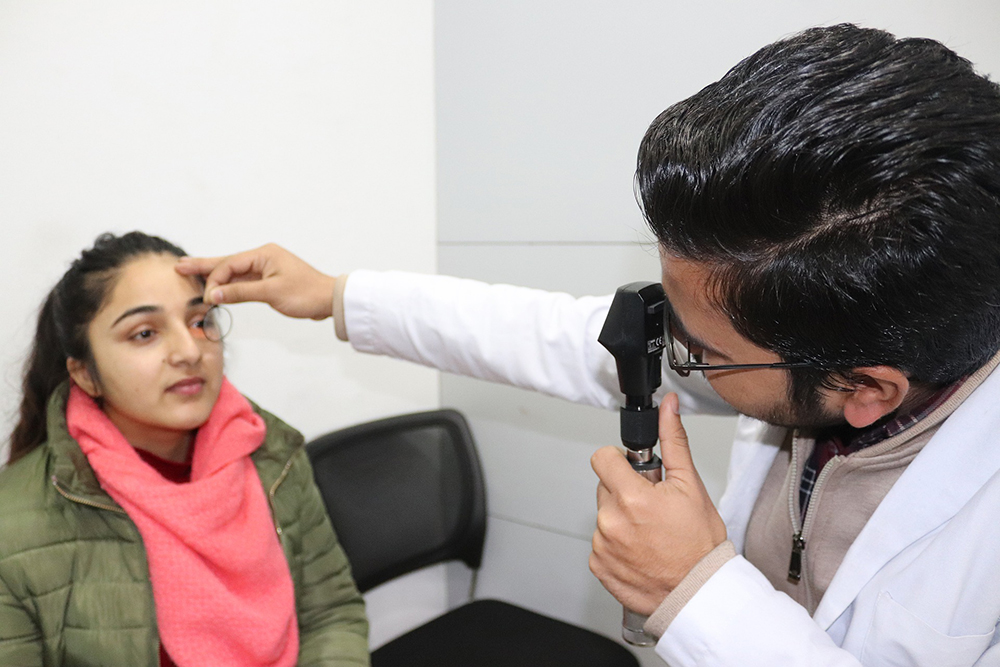Keeping your vision at its best is as important as going to your primary care physician for your physical health and your dentist for your dental health. Learn why annual eye exams are so important to your vision!
Vision Care
Why are annual eye exams so important? Getting your eyes checked regularly by an optometrist or ophthalmologist (eye doctor) is necessary to find eye diseases in the early stages when treatment to prevent vision loss is most effective. During the exam, visual acuity (sharpness), depth perception, eye alignment, and eye movement are tested. Eye drops are used to make your pupils larger so your eye doctor can see inside your eyes and check for signs of health problems. Your eye doctor may even spot other conditions such as high blood pressure or diabetes, sometimes before your primary care doctor does.
Early Treatment
Early treatment is critically important to prevent some common eye diseases from causing permanent vision loss or blindness:
- Cataracts (clouding of the lens), the leading cause of vision loss in the United States
- Diabetic retinopathy (causes damage to blood vessels in the back of the eye), the leading cause of blindness in American adults
- Glaucoma (a group of diseases that damages the optic nerve)
- Age-related macular degeneration (gradual breakdown of light-sensitive tissue in the eye)
Of the estimated 93 million US adults at high risk for vision loss, only half visited an eye doctor in the past 12 months. Regular eye care can have a life-changing impact on preserving the vision of millions of people.
How often Do You Need Eye Exams?
- Children’s eyes should be checked regularly by an eye doctor or pediatrician. The US Preventive Services Task Force recommends vision screening for all children at least once between age 3 and 5 years to detect amblyopia or risk factors for the disease.
- People with diabetes should have a dilated eye exam every year.
- Some people are at higher risk for glaucoma and should have a dilated eye exam every 2 years:
- African Americans 40 years and older
- All adults older than 60, especially Mexican Americans
- People with a family history of glaucoma
For more helpful eye care and vision care tips, please visit our main blog page.
Source: cdc.gov


Spot on with this write-up, I really believe this site needs a lot more attention. I’ll probably be returning to see more, thanks for the information!
Check out my web page vpn special code
always i used to read smaller posts which as well clear their motive, and that
is also happening with this post which I am reading now.
Here is my site vpn special
Hey there! I understand this is kind of off-topic however I had
to ask. Does running a well-established
blog such as yours take a large amount of work?
I’m completely new to running a blog but I do write in my journal everyday.
I’d like to start a blog so I can easily share my personal experience and feelings online.
Please let me know if you have any kind of recommendations or tips for brand new aspiring blog owners.
Thankyou!
Here is my web-site :: vpn special coupon code 2024
Excellent post. I was checking constantly this blog and I’m impressed!
Extremely helpful info particularly the last part 🙂 I care for such information much.
I was looking for this particular information for a very long time.
Thank you and good luck.
Here is my web blog: vpn special code
Amazing! Its actually remarkable piece of writing, I have got much clear idea regarding from
this article.
My web site: facebook vs eharmony to find love online